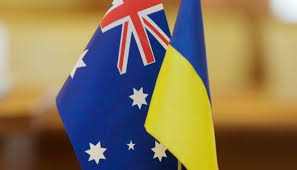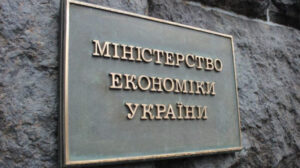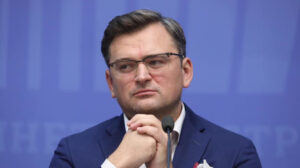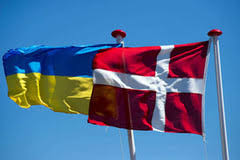
Deputy Prime Minister – Minister of Defense of Australia Richard Marles announced another package of military aid to Ukraine from Australia in 100 million dollars.
“Australia will stay with Ukraine for as long as it takes for Ukraine to win this war. To that end, we are today announcing the next $100 million dollar aid package to Ukraine. 50 million of this will be for short-range air defense systems. Another 30 million will be for drones, as Australia is part of a drone coalition with the UK and Latvia. The remainder of the amount will be used to purchase support equipment, from inflatable boats to helmets and boots,” Marles told a joint briefing with Ukrainian Prime Minister Denis Shmygal in Lviv on Saturday.
He also added that Australia had been able to provide Ukraine with air-to-ground munitions.
“We understand that this conflict will be very long and we will provide more in the future because we are determined to stand with Ukraine for as long as necessary,” the minister stressed.
As Shmygal wrote in Telegram, in total, Australia’s support for Ukraine already amounts to more than $655 million, of which $540 million is specifically military aid.
“We very much appreciate such solidarity of the Australian people with Ukraine. Thank you Mr. Richard Marles for deep involvement in Ukrainian affairs, for effective solidarity, for the concrete things that Australia is doing for Ukraine,” wrote Shmygal.

Ukraine’s real gross domestic product (GDP) growth for January-March 2024 amounted to 4.5% (+/- 1%) from 3.6% (+/- 1%) at the end of January-February.
Growth accelerated to 4.6% (+/- 1%) in March from 3.9% (+/- 1%) in February and 3.5% (+/- 1%) in January this year, according to an estimate released on the website of the Ministry of Economy of Ukraine.
“In March 2024, the trend of recovery growth continued, supported by the stable operation of the Ukrainian maritime corridor (stimulated activity in rail transport, metallurgy and metal ore mining), increased production capacity in the extractive industry, intensified production of mineral fertilizers, increased demand for construction materials, taking place against the backdrop of improved business sentiment … and revival of consumer activity …,” the Ministry of Economy pointed out.
The Ministry added that in March, almost all aggregated economic activities formed a positive contribution to the total GDP. Thus, exports of products of agricultural production and mining and metallurgical complex were provided by the Ukrainian Sea Corridor; and investment demand generated by the budget, as well as the increase in production capacity in the extractive industry formed a positive contribution of production types.
At the same time, it is pointed out that the dynamics of electricity production slowed down significantly in the context of significant rocket attacks in late March, which led to serious damage to energy infrastructure and will require a significant period of time and resources to restore it.
As reported, the National Bank of Ukraine on April 25 worsened its forecast for the country’s GDP growth this year from 3.6% to 3% after 5.3% last year.
When approving the draft state budget for the second reading in early November 2023, the government forecasted GDP growth of 4.6% this year.
Earlier Experts Club analytical center and Maxim Urakin released a video analysis of how the GDP of the world’s countries has changed in recent years, more detailed video analysis is available here – https://youtu.be/w5fF_GYyrIc?si=BsZmIUERHSBJrO_3 Subscribe to Experts Club youtube channel here – https://www.youtube.com/@ExpertsClub
EXPERTS CLUB, GDP, MACROECONOMICS, MINISTRY OF ECONOMY, UKRAINE, УРАКІНА

Ukraine and Latvia are working to increase drone production, Ukrainian Foreign Minister Dmytro Kuleba has said.
During a joint press conference in Kyiv with Latvian Foreign Minister Baiba Braže, Kuleba noted the great potential of Ukrainian and Latvian companies to increase production of attack UAVs.
“I am very grateful to Latvia for its leadership in the Drone Coalition. We are now working together to increase this production – we need more drones. I believe that Ukrainian and Latvian companies can really do a lot in this direction,” he said.
The minister also noted Latvia’s decision to join the Czech initiative to purchase artillery shells and noted that the production of shells was one of the central issues during the bilateral talks.
Kuleba also thanked Braža for making her first visit in her new position to Ukraine, which is a sign of special respect for Ukraine and its defenders.

The level of wages in 2024 plans to increase 72% of surveyed companies, almost the same number of companies (74%) feel the shortage of staff, these are the results of a study of the labor market in Ukraine from the European Business Association (EBA).
According to the published data, 39% intend to increase wages by 11-15%, and 28% – by 6-10%, while plans to increase it by 16-20% – reported 13%, and above 21% – 2%.
It is also specified that the shortage of personnel has significantly increased since the fall survey, when 55% of respondents complained about it, while today only 7% of respondents do not feel it at all, while 17% feel it partially.
Within the survey, 79% of respondents reported a salary increase in 2023, 46% reported an increase in functionality and hiring new employees, and 36% reported an increase in budgets for staff development, training and maintenance.
In addition, 27% informed about increasing bonuses and bonus payments, while 10% of respondents reported staff reductions.
As for 2024, survey participants noted that companies are planning to increase salary levels (72% of respondents), increase training and development budgets (39%), increase the number of employees (35%), and enter other markets and find new partners (32%).
54% of survey participants indicated that their companies offer the opportunity to work remotely, but not for all categories of workers. 28% of respondents indicated that remote working is possible for all workers and only 17% reported that it is impossible to work remotely.
“Accordingly, there is a gradual dynamic of workers returning to offices. For comparison, in January 2023, only 4% of companies did not have the possibility of working remotely,” states the EBA.
The association also added that 52% of respondents have employees abroad, but their share does not exceed 5% of the total staff of the company, while 19% of respondents have 6-10% of employees abroad.
It is noted that 32% of respondents have all employees of the company now live and work in Ukraine, which is higher than in previous periods. At the same time, some companies use formats of temporary contracts abroad, upon completion of which employees can return to Ukraine.
Poland, Germany, Czech Republic, Romania, Great Britain, Spain, Israel, Netherlands, Slovenia, Austria, Norway, Belgium, USA, Switzerland, Canada, Latvia, Italy, Luxembourg were named among the countries where most of the companies’ employees live.
It is emphasized that 41% of respondents do not plan to return workers to the office in the near future, 12% said that the company plans to return all workers to the office in the near future, and 20% of respondents said that the company plans to return not all categories of workers.
To tear away vacancies in companies, 67% of survey participants intend to do so, with 48% of respondents not planning to change the number of employees in 2024, and 26% will increase staffing by ≥5%.
Also, 7% said that the number of employees will increase by 6-10% and 5% of respondents wrote that their companies plan to reduce the number of employees.
109 HR professionals (49% department heads, 24% middle managers, 26% top management, 3% junior staff) participated in the study, it lasted from February to April 2024 and covered the period August 2023 – April 2024.
More than 60% of the participants in this study will represent international businesses. 50% of companies are from large businesses, 43% from medium-sized businesses and 7% from small businesses.

The European Bank for Reconstruction and Development (EBRD) has appointed Arvid Türkner, who has held a similar position in Turkey since November 2017, as its new Managing Director for Ukraine and Moldova from May 1, 2024, the bank said in a press release on Wednesday.
“Ukraine is a priority area for EBRD investments, with EUR4.1 billion sent there during the wartime period. Türkner will replace Matteo Patrone, who after five years of work (in Ukraine) will hold the position of EBRD vice president for the banking sector,” the release stated.
The EBRD notes that future wartime and reconstruction investments in Ukraine will be underpinned by the EUR4bn paid-up capital increase approved by shareholders late last year.
“Arvid Türkner’s outstanding performance in his previous role in Turkey gives us great confidence that this vital portfolio is in safe hands,” the statement quotes EBRD First Vice President Jürgen Rigterink as saying.
It is indicated that Türkner will oversee the development of the EBRD’s program for Ukraine, focusing on five wartime investment themes: support for energy security, vital infrastructure, food security, trade and the private sector, as well as political dialogue to help Ukraine and Moldova move towards EU membership.
It is reported that Türkner, a German national, joined the EBRD in January 2009 from the German development bank DEG as a senior banker in the financial institutions group in Moscow. In October 2013, he was promoted to regional development director and deputy head of the Moscow office, and became head of the office in April 2015.
After moving to London in early 2017 as director of corporate debt, Turkner was appointed to his current role as managing director in Turkey in November 2017, where he successfully led the bank’s crisis response to the devaluation of the lira in 2018. Under his leadership and despite recurring macroeconomic volatility, the bank’s business in Turkey has continued to grow significantly: the portfolio is currently valued at EUR7.5bn, with 246 active projects and EUR5.8bn of operating assets. In 2023 alone, the bank signed 48 projects worth EUR2.48bn.

The Danish government has decided to allocate additional EUR380m for the reconstruction of Ukraine’s infrastructure and construction of wind farms, Danish Business Minister Morten Bedskou said at a meeting with Ukrainian President Volodymyr Zelensky in Kiev.
According to the press service of the President, during the meeting, the Danish Minister of Entrepreneurship noted the opportunities for strengthening cooperation between the countries and informed about the decision of his government to allocate additional funding for the Ukrainian mechanism of the Danish Export and Investment Fund.
As noted, this mechanism fully covers the risks of Danish exporters and investors, as well as provides financing to Ukrainian private companies and state institutions.
For him, the Danish government will allocate almost EUR380 million more for the restoration of critical infrastructure and construction of wind farms.
At the meeting, Zelensky and Bedskou paid special attention to the prospects of expanding Danish business and attracting new investments in Ukraine.
In turn, the President of Ukraine emphasized the importance of the fact that the Minister of Entrepreneurship of Denmark during his visit to Kiev is accompanied by the heads of Danish companies – the largest investors in the economy of Ukraine.
“Your activity in the Ukrainian market is striking. With your investments you set an example for other partners and investors”, – emphasized Zelensky.
As reported, during the recent visit of the First Lady of Ukraine Olena Zelenska to Denmark, she asked Danish partners for additional funding for the Danish Export and Investment Fund, the funds from which come to help Ukraine.
DENMARK, INFRASTRUCTURE, Morten Bedskow, RECONSTRUCTION, UKRAINE